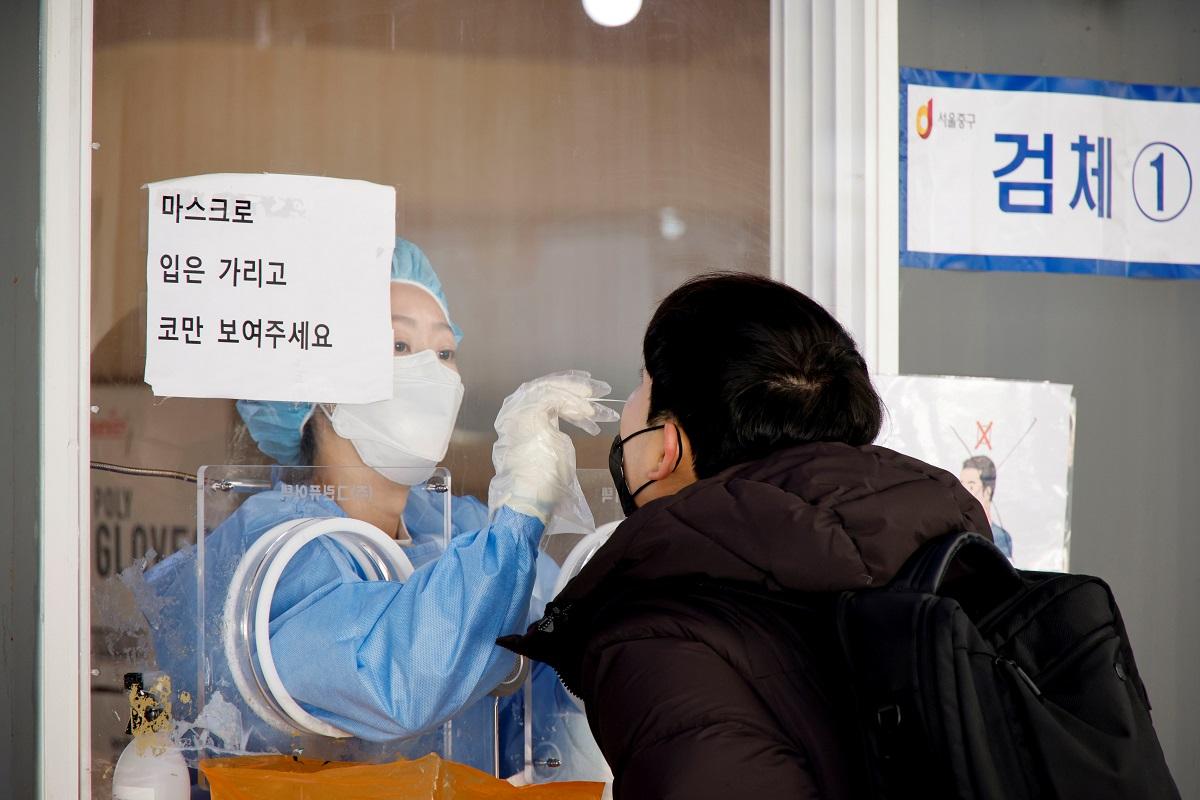S.Korea to cut COVID-19 booster shot interval again as infections rise

SEOUL — South Korea will further cut the interval for coronavirus booster vaccines for all adults from four to five months to three, officials said on Friday, as it struggles to fight record levels of infections amid concerns over the Omicron variant.
The move came three weeks after the government reduced the booster gap for people aged 60 and older and primary groups to four months from six. The interval for all other adults had been five months.
"The government has decided to shorten the gap so that all adults can receive an extra dose three months after initial vaccination," Prime Minister Kim Boo-kyum told an intra-agency meeting.
"Our medical response capacity is being rapidly exhausted as more than 7,000 new cases arose for a third straight day."
South Korea has fully vaccinated almost 94% of its adults so far, and more than 31% of some 17 million eligible for a booster shot have received it.
But since distancing rules were eased last month under a "living with COVID-19" scheme, the country has been grappling with spiraling numbers of new cases, putting heavy strains on its medical system. Total infections in the country since the start of the pandemic have risen to 503,606 as of Thursday, with 4,130 deaths.
Daily tallies of infections topped 7,000 for the first time this week, just days after passing the 5,000 mark, with severe cases also reaching their highest levels and more Omicron variant infections being confirmed.
The Korea Disease Control and Prevention Agency (KDCA) reported 7,022 cases for Thursday, including 852 serious cases and 63 Omicron infections.
Prime Minister Kim also issued a new administrative order for large hospitals outside the greater Seoul area to prepare 1,700 beds, as nearly all intensive care units are occupied in the capital region.
Lee Ki-il, deputy minister of health care policy, said at a briefing that the government might reimpose social distancing curbs, including gathering and dining bans, as early as next week if infections continue to spread. — Reuters




